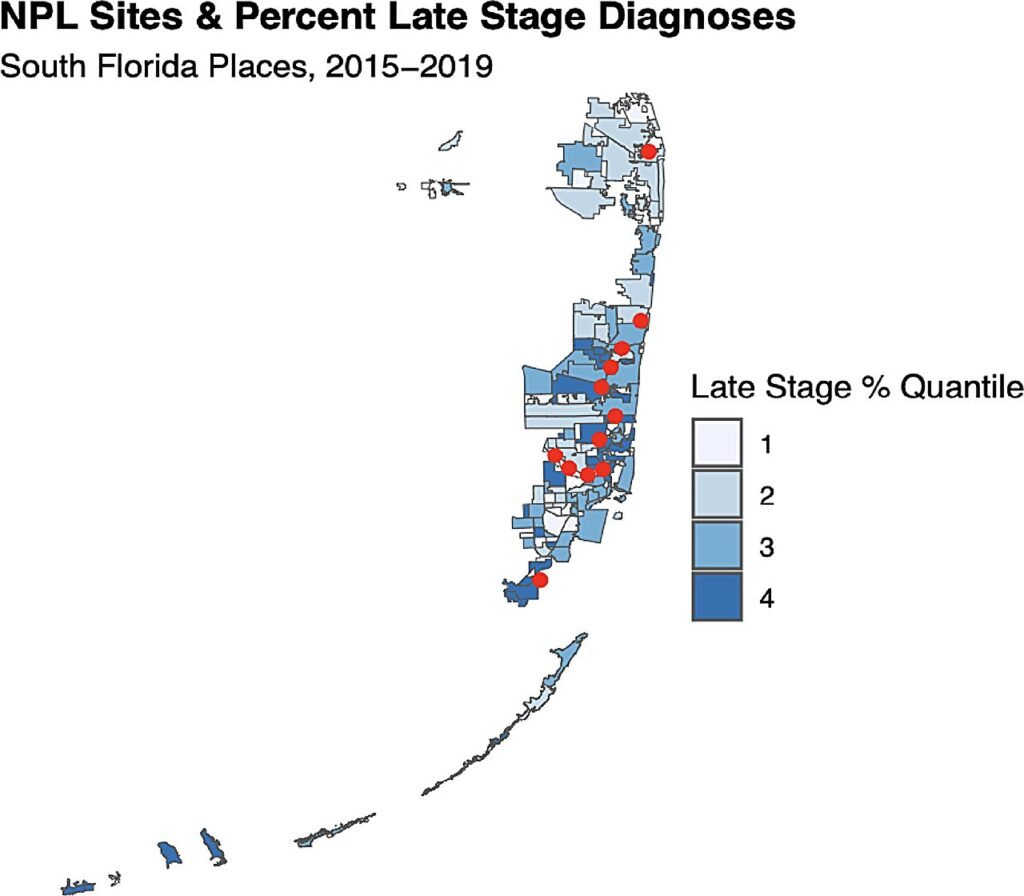Breast cancer remains a significant concern for women worldwide, with aggressive forms of the disease posing particular challenges in treatment. Recent studies from the Sylvester Comprehensive Cancer Center at the University of Miami Miller School of Medicine have shed light on potential links between breast cancer, Superfund sites, and social adversity.
According to the American Cancer Society, breast cancer is the second leading cause of cancer death among women. Alarmingly, certain aggressive forms of the disease, such as triple-negative breast cancer, are on the rise and proving resistant to treatment. With over 300,000 new cases diagnosed annually in the United States, understanding environmental factors contributing to these trends is crucial.
In Florida, the presence of 52 active Superfund sites has raised concerns among community members, prompting researchers at Sylvester to investigate the potential health impacts. Dr. Erin Kobetz, an epidemiologist and associate director at Sylvester, led a multidisciplinary team to study the relationship between breast cancer and proximity to these Superfund sites. Utilizing the SCAN360 data portal, the team analyzed neighborhood characteristics and cancer risks in South Florida.
The first study examined over 21,000 cases of breast cancer in Florida from 2015 to 2019, revealing that living in the same census tract as a Superfund site increased the likelihood of metastasized breast cancer by 30%. Specifically, proximity to Superfund sites was associated with an increased risk of triple-negative breast cancer, a particularly aggressive subtype. The team also found that higher exposure to particulate matter 2.5 (PM2.5) correlated with a higher risk of TNBC in South Florida.
In a separate study, researchers delved into the molecular level of breast cancer, analyzing biomarkers in tumors from 80 patients in the Miami area. By examining genetic, epigenetic, and RNA data, the team identified correlations between neighborhood deprivation and aggressive breast cancer. This research paves the way for personalized treatment plans tailored to individual tumor conditions.
Dr. Kobetz emphasized that these studies were driven by community concerns, with empirical data validating the community’s perspective. As the first pieces of a larger puzzle, these findings underscore the need to prioritize environmental factors in cancer research and treatment.
By uncovering the links between breast cancer, Superfund sites, and social adversity, the researchers at Sylvester Comprehensive Cancer Center are paving the way for a healthier future. Through community-driven research and personalized care approaches, they are working towards better outcomes for breast cancer patients in Florida and beyond.


